The 2024 FCPF annual report spotlights a banner year for total FCPF emission reductions payments, which more than tripled from $53.2 million in 2023 to $164.5 million in 2024.
FCPF 2024 Annual Report
At the UNFCCC’s 28th Conference of the Parties (COP28) in December, the FCPF and ISFL partnered with participant countries to present a broad range of exciting work happening around the world to advance REDD+ and sustainable forest landscapes. These events highlighted advancements in expanding climate and carbon finance for developing countries, ensuring equitable benefit sharing of results-based payments, and working toward high-integrity, transparent, and inclusive carbon markets.
Below are highlights from these COP28 events.
World Bank Announces Engagement Roadmap for Carbon Markets
At COP28, World Bank President Ajay Banga presented the ambitious WB Engagement Roadmap for Carbon Markets, which is the Bank’s new strategy to help expand high-integrity, transparent and inclusive carbon markets.
This roadmap describes how the World Bank will work closely with private and public sector partners to:
1. Enhance countries' capacity to prepare for and leverage opportunities in carbon markets;
2. Ensure the integrity of carbon credits in large-scale World Bank-financed programs—replicating and scaling successful initiatives such as the FCPF; and
3. Collaborate with key stakeholders in the carbon markets ecosystem to address bottlenecks impeding the growth of a robust, well-functioning, and trustworthy global carbon market.
This roadmap describes how the World Bank will work closely with private and public sector partners to:
- Enhance countries' capacity to prepare for and leverage opportunities in carbon markets;
- Ensure the integrity of carbon credits in large-scale World Bank-financed programs—replicating and scaling successful initiatives such as the FCPF; and
- Collaborate with key stakeholders in the carbon markets ecosystem to address bottlenecks impeding the growth of a robust, well-functioning, and trustworthy global carbon market.
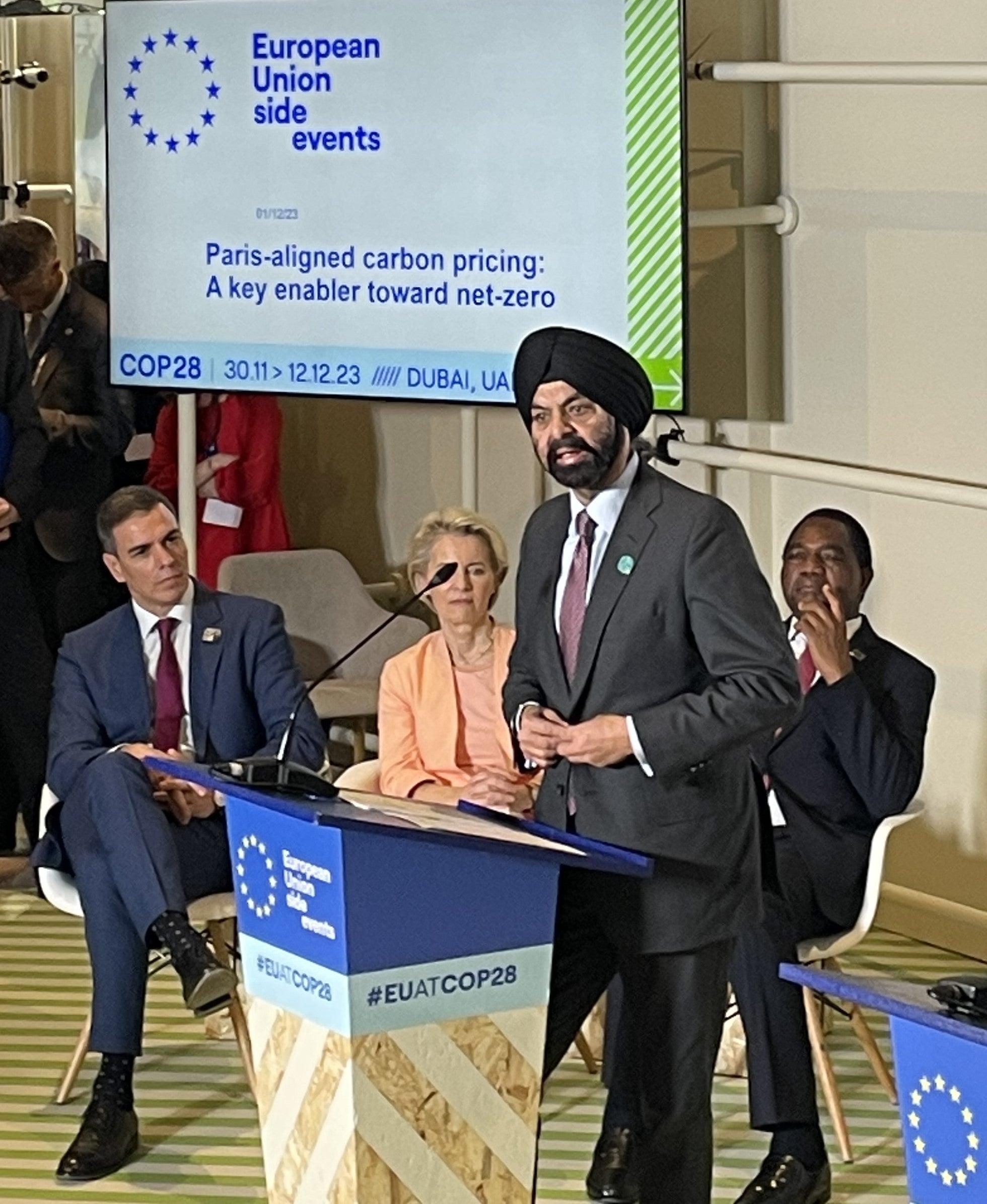
During this announcement, President Banga highlighted carbon market advancements the FCPF’s 15 Carbon Fund participant countries are pursuing. This work includes making high-integrity, jurisdictional-scale forest carbon credits available to markets, as well as accessing finance from carbon markets.
Read more on the World Bank’s Engagement Roadmap for Carbon Markets
More on the FCPF’s carbon crediting standard
World Bank flyer: High-Integrity Forest Carbon Credits
Lessons Learned and the Future of Results-Based Payments through REDD+ Sub-National Implementation
In Indonesia’s COP28 Pavilion, the FCPF and ISFL supported a workshop that shared lessons learned from emission reductions programs in Indonesia, Ethiopia, and Vietnam. Participants explored how the implementation of sub-national REDD+ and integrated land-use programs is helping to achieve broader emission reductions targets.
Watch the event recording (starting at 7:11:36)
Madagascar Receives $8.8 Million for Forest Carbon Credits that will Further Protect Remaining Forests and Communities
During COP28, the National Climate Change and REDD+ Coordination Office of Madagascar was pleased to announce that Madagascar has become the third African country (after Mozambique and Ghana) to be paid by the World Bank for reducing emissions from deforestation and forest degradation. In December, Madagascar received $8.8 million from the FCPF Carbon Fund for carbon credits from reducing 1.76 million tons of carbon emissions in 2020.
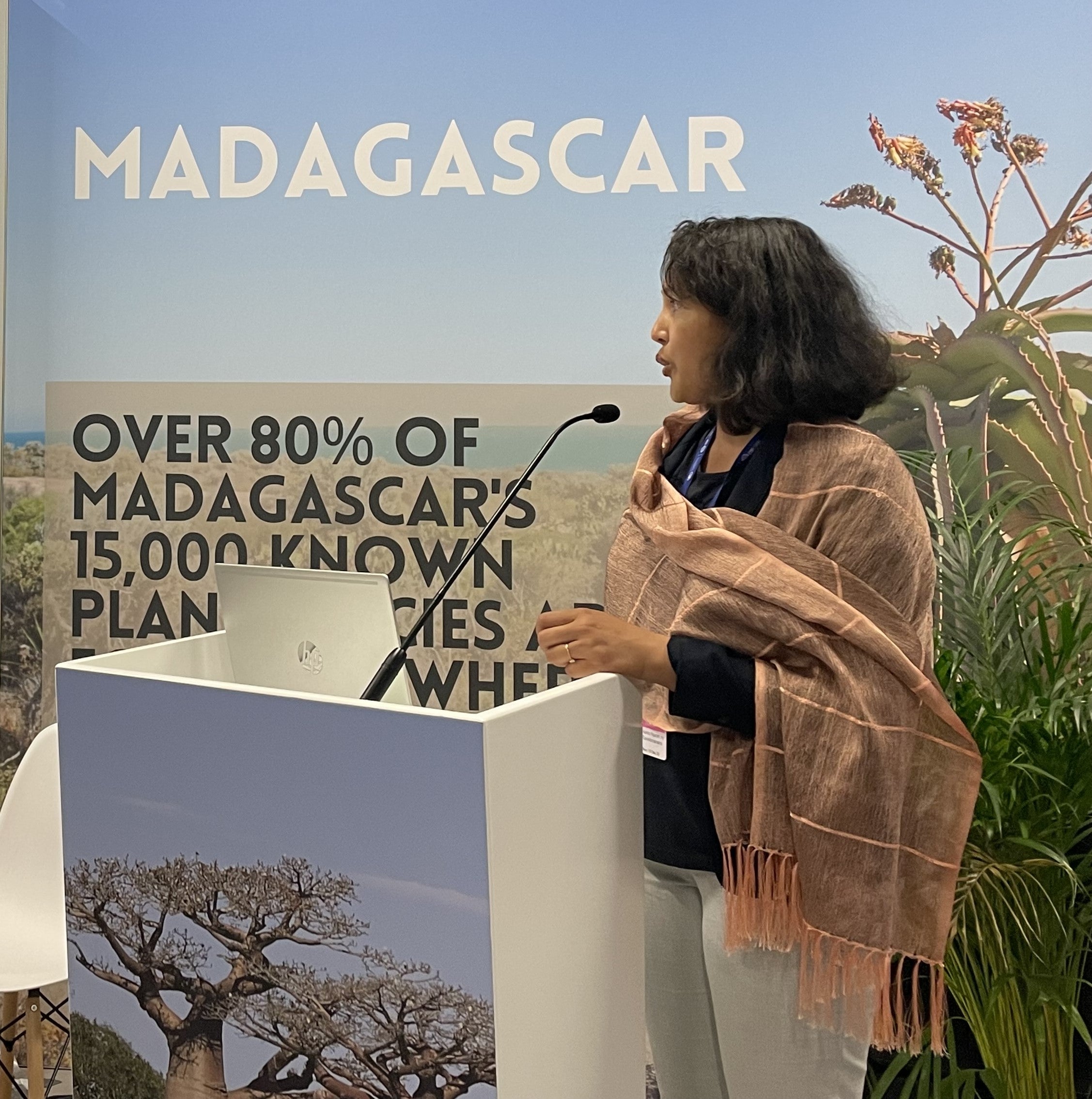
The payment is the first of three under the country’s Emission Reductions Payment Agreement (ERPA) with the FCPF Carbon Fund. This agreement is set to unlock up to $50 million for reducing up to 10 million tons of CO2e emissions along the country’s rainforest-rich eastern coast by the end of 2024.
Trustworthy and Transparent Voluntary Carbon Markets: A Game Changer for Developing Countries
This COP28 event showcased the work of the 15 FCPF Carbon Fund countries to generate high-integrity carbon credits, bring credits to market, and ensure inclusive benefit sharing.
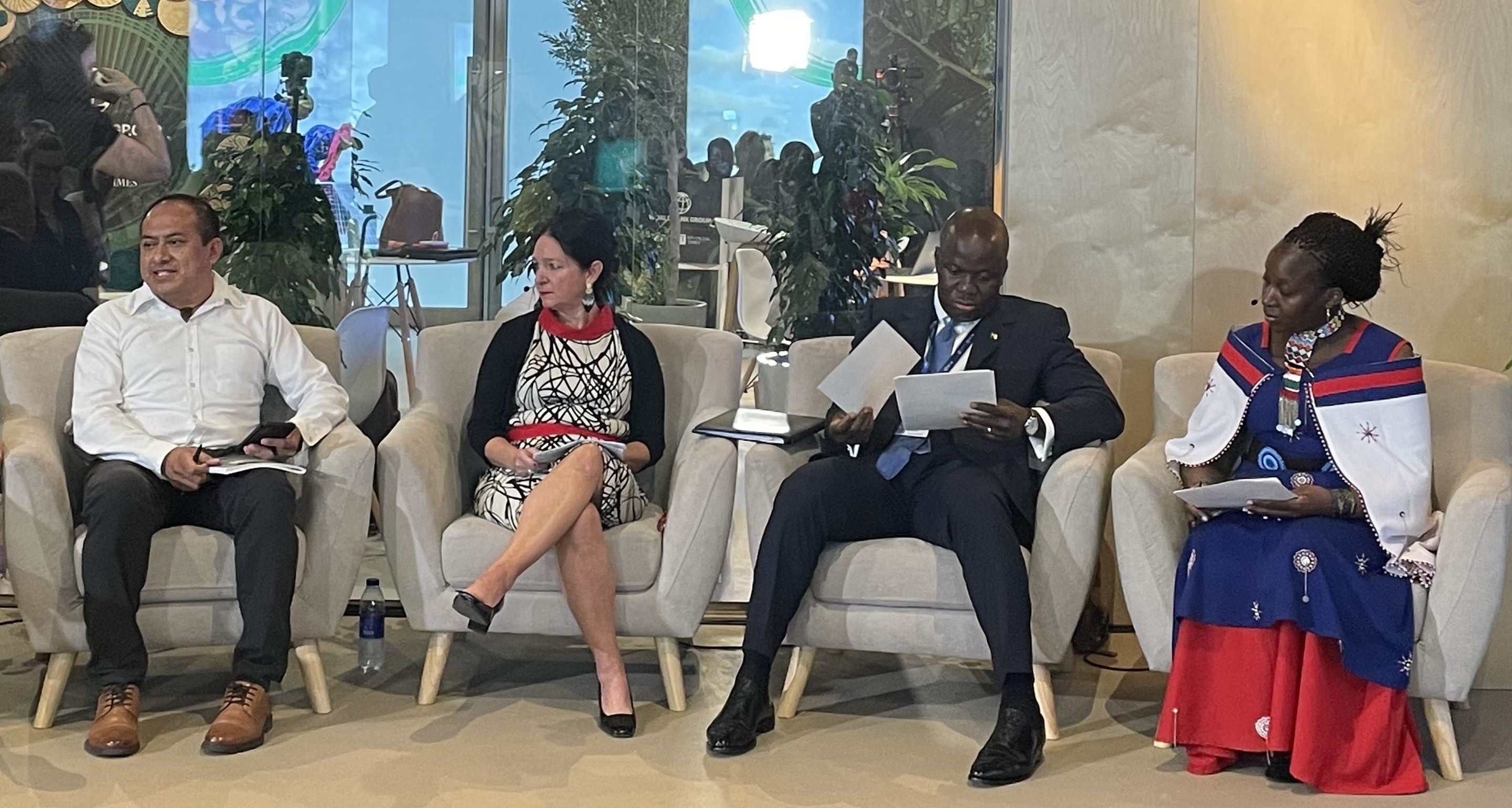
event recording
ISFL’s Orinoquia program in focus at COP28 Colombia Pavilion
In Colombia’s COP28 Pavilion, the ISFL participated in two events showcasing Colombia’s Orinoquia Emission Reductions program. One event explored the program as a pathway for meeting the country’s Nationally Determined Contributions, especially through sustainable food production, and promoting environmental and social integrity.
The second event shared how Colombia’s collaborative approach to public-private partnerships is advancing the development of low-carbon production models in the country.
Learn more about Colombia’s ISFL program in Orinoquia
Cote d’Ivoire showcases its Taï National Park Emission Reduction Program
At this COP28 event, Cote d’Ivoire’s Minister of Water and Forests, Laurent Tchagba, explained how the country is optimizing upfront investments from the World Bank’s Forest Investment Program, and other private sources, with result-based payments from the FCPF in Cote d’Ivoire’s Emission Reductions Program area.
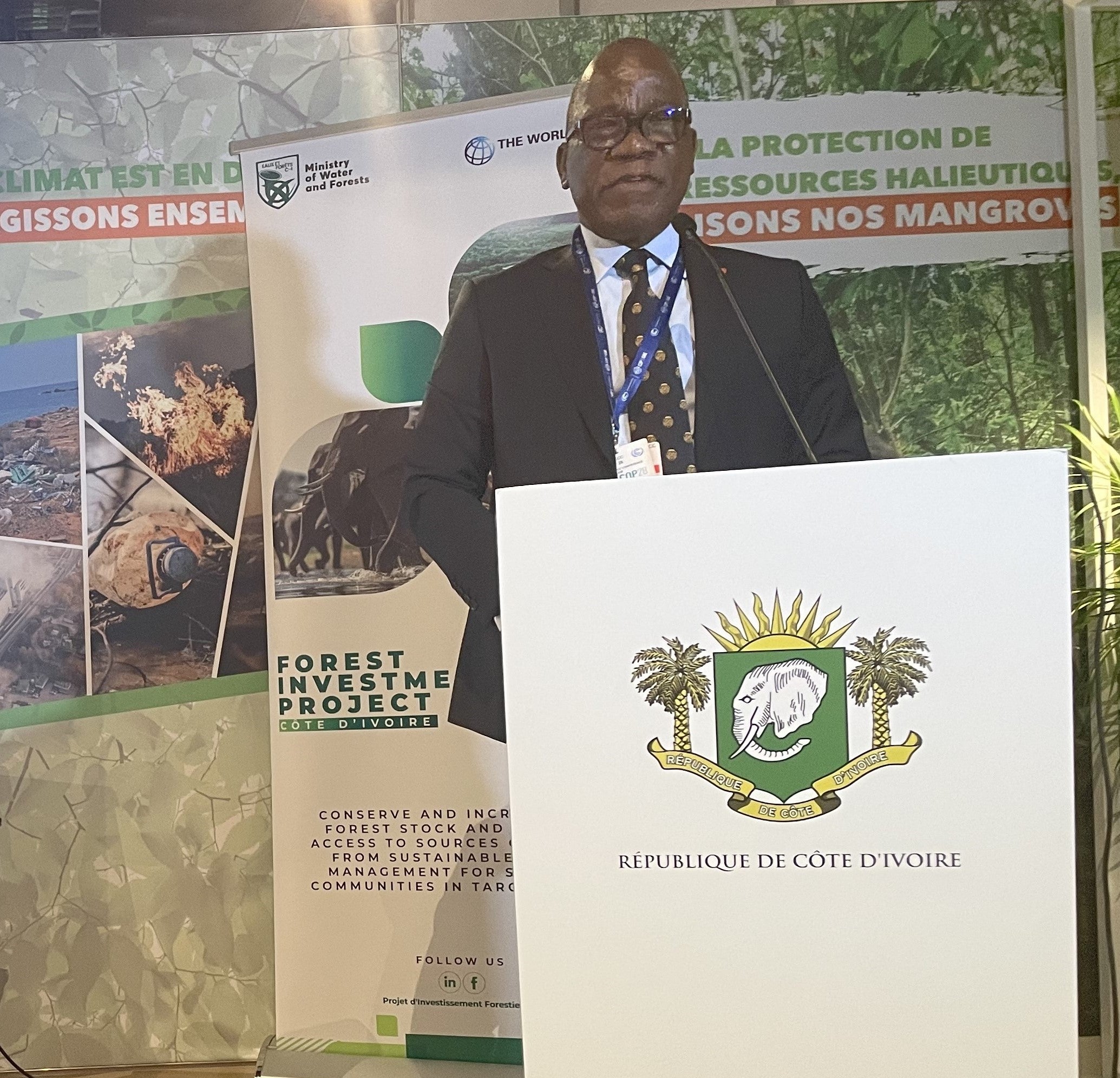
Cote d’Ivoire is finalizing its third-party verification of more than seven million FCPF carbon credits, which is expected to result in its first FCPF Carbon Fund payment of $35 million.
Ghana Implements its Inclusive Benefit Sharing Plan
At COP28, Ghanaian community representatives showcased the benefit-sharing arrangements of Ghana’s Emission Reduction (ER) program with the FCPF Carbon Fund. Presenters shared how benefit-sharing arrangements were designed through an inclusive process. These arrangements are helping to ensure most of the ER benefits are shared with communities, and that disadvantaged groups can participate effectively.
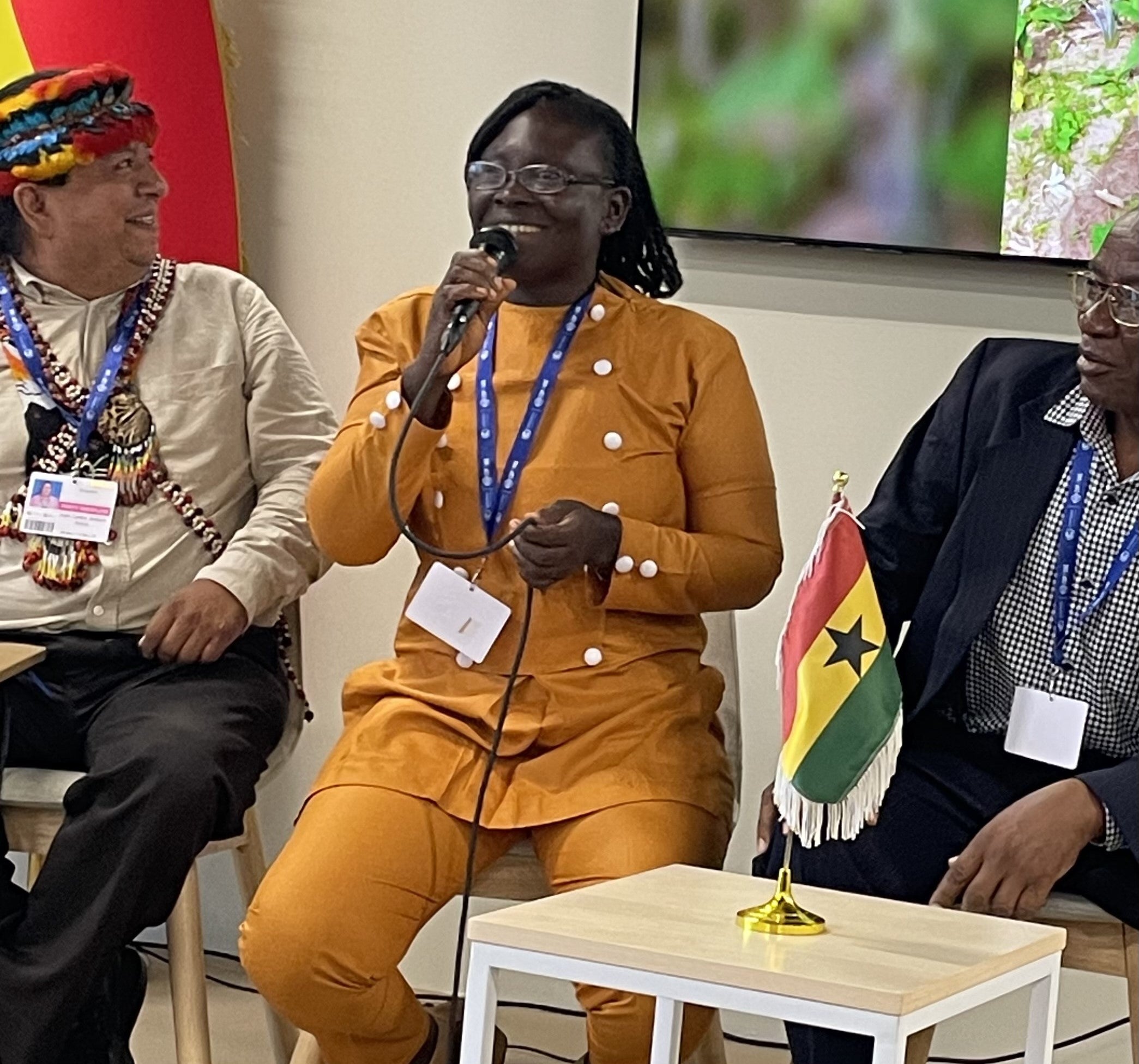
Participants also shared key lessons learned and recommendations for benefit-sharing initiatives among other FCPF ER programs, as well as other with other initiatives including the LEAF Coalition.
